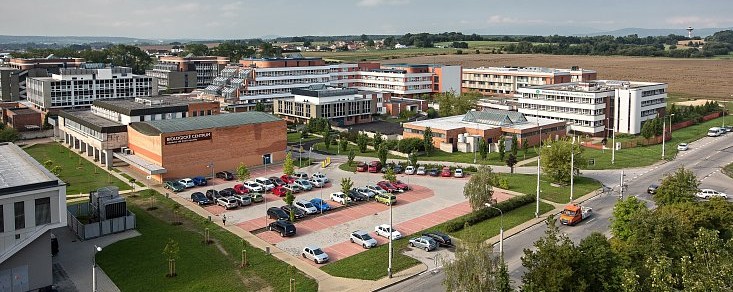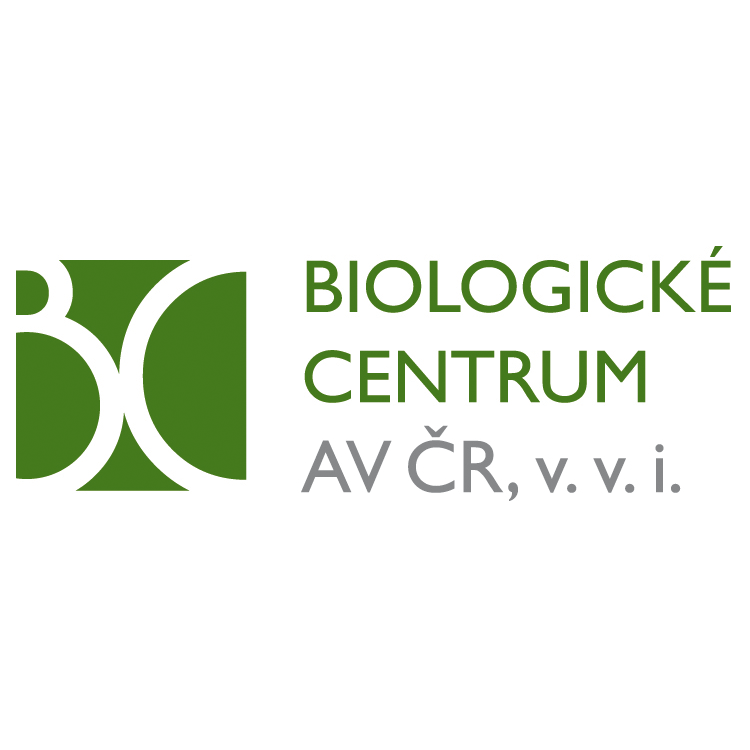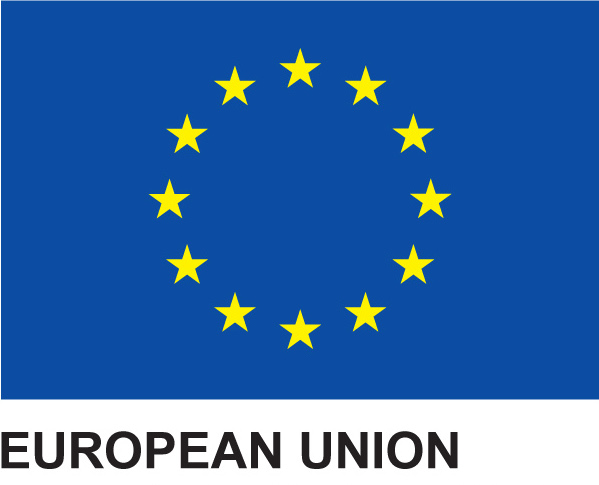

Biology Centre CAS
Biologické centrum AV ČR, v.v.i.
The Biological Centre of the CAS, v. v. i. (hereinafter referred to as "BC") consists of five scientific institutes (Institute of Entomology, Institute of Hydrobiology, Institute of Parasitology, Institute of Molecular Plant Biology and Institute of Soil Biology), and since 2016, the SoWa research infrastructure has been part of the BC, focusing on complex studies of soil and water ecosystems and their interactions. Currently, the Biological Centre with its more than 780 employees is the largest non-Prague institution of the Czech Academy of Sciences. At the same time, it is one of the largest scientific institutions of ecologically oriented research in Europe. The common denominator of the scientific research of the individual BC institutes and the SoWa research infrastructure are the themes of evolutionary biology and ecology with an emphasis on the origin and evolution of species diversity and its sustainability.
Branišovská 1160/31
České Budějovice
370 05
Czech
48.9782414
14.4464928
Prof. RNDr. Libor Grubhoffer, CSc., Hon. D.Sc., dr. h. c.
Director
+420 387 775 050
libor.grubhoffer@bc.cas.cz
www.bc.cas.cz
Services
Services for the private sector:
Agriculture, forestry, fishing, food processing
- biological protection of plants against insect pests
- ecological control of insect pests of forest trees
- analysis of the spread of antibiotics and antibiotic resistance in soil
- diagnosis of diseases of bees and other pollinators
- food supplement for bees to increase their resistance and immunity
- diagnosis of plant viruses and more effective defence against viral diseases
- detection of new plant viruses
- analysis of soil fertility and quality
- diagnosis of parasites in fish farms and their elimination
- use of soil microorganisms for food and industrial purposes
- biotechnology
Human and animal health
- solving economic and medical problems related to human and animal parasites
- development of a tick vaccine for domestic and farm animals
- development of a universal human tick vaccine and potential drugs against tick-borne encephalitis and other viral diseases caused by parasites
- research on the gut microbiome and the use of safe intestinal parasites for the treatment of autoimmune diseases
- use of the soil microorganism collection to search for biologically active substances suitable for medicine (antibiotics, anti-inflammatory substances)
- metabolomic analytics
Services for the public sector:
Environment
- assessment of the quality of environmental components and biodiversity (soil, water, forest, meadow, landscape) and analysis of the state of the environment
- short-term and long-term monitoring of the environment
- revitalization, reclamation and phytoremediation of the landscape (habitats depleted by intensive agriculture, post-industrial habitats, habitats with ecological burden)
- regeneration and revitalisation of soil and water in the environment
- evaluation of anthropogenic impacts and pollution
- formulating nature conservation measures to achieve a balanced ecosystem and high biodiversity
- formulation of measures for the management of protected landscapes
- assessment of the ecological status and management of water bodies (Římov, Lipno, Šumava lakes) and their catchment areas
- forecasting the evolution of environmental quality in relation to human activity and climate change
Equipment / infrastructure
SoWa Research Infrastructure
- It deals with research on soil and water ecosystems in the context of sustainable landscape use. It focuses on the development of new technologies, applications, approaches and strategies for the efficient use of natural resources.
Institute of Soil Biology
- Equipped laboratories for soil microbiology, zoology, nanobiotechnology, soil organic matter.
- The institute develops the multidisciplinary field of soil biology, i.e. soil zoology, microbiology, chemistry and micromorphology, and addresses fundamental issues related to soil formation, fertility and regeneration - revitalisation, reclamation, remediation of landscapes and soils, including the investigation of soil profile and properties such as water retention, with the aim of using this information for agricultural management and subsequent recommendations.
Institute of Hydrobiology
- Equipped laboratories for fish and zooplankton ecology, microbial water ecology, hydrochemistry and ecological modelling.
- The specialisation of the Institute's staff ranges from hydrochemistry through biochemistry, microbiology, algology, protozoology, zooplankton zoology and ichthyology. The main mission of the institute is then research involving explanations ranging from the role of fish in food webs to support fisheries, biomanipulation or conservation, to predictions of nutrient loss from ecosystems in response to global trends in atmospheric pollution and climate change, to biotechnological optimization as a powerful and sustainable tool for removing micropollutants from aquatic resources.
Institute of Entomology
- Equipped laboratories of molecular and developmental genetics, molecular cytogenetics and chronobiology, telomeres, biochemistry and physiology, biodiversity and nature conservation.
- Applied research was the original purpose of the institution and the institute has produced more than 150 patents in the field of agriculture and forestry. These include processes for the preparation of bacteria, viruses and fungi useful for the ecologically sound control of insect pests, the development of pheromones for monitoring the occurrence of harmful insects, the use of parasitoids and predators to control aphids, the development and application of insect juvenile hormone analogues, etc. One very important by-product of research on entomopathogenic fungi, for example, was the discovery of cyclosporine, a substance that suppresses the body's immune response.
Department of Molecular Biology of Plants
- Equipped laboratories of plant biochemistry and biophysics, epigenetics, photosynthesis, molecular cytogenetics, plant molecular signalling and plant virology
- The institute is equipped with instruments and facilities necessary for molecular biological study of plants, including air-conditioned greenhouses, climate-boxes and tissue culture rooms. It is authorised to work with genetically modified organisms and quarantine plant pathogens. His research makes a significant contribution to the national plant biotechnology program, provides expert diagnosis of quarantine plant viruses for the Ministry of Agriculture and the State Plant Health Administration, and provides analysis of genetically modified crops for the Ministry of the Environment, including expert collaboration in drafting laws and regulations related to GMOs.
Institute of Parasitology
- Equipped laboratories for molecular parasitology, tick-borne diseases, evolutionary parasitology, disease vector biology, fish parasitology, opportunistic parasitosis, electron microscopy.
- The Institute of Parasitology is a leading national and international institution focused exclusively on research in the biology and ecology of parasitic protozoa and eukaryotic microorganisms, helminths and arthropods. The results obtained are used in the prevention and treatment of human and animal diseases, as well as in agriculture. Currently, the research teams of the Institute are involved, among other things, in the development of point-of-care diagnostics of Covid-19 and, in cooperation with the South Bohemian Hospital, in its treatment with convalescent plasma.
Best practices / case studies of cooperation
aiolite, spol. s r.o.
- Development of informatics and advanced artificial intelligence tools for metabolomics data processing and mining and their integration with complex biological and clinical information.
Mezinárodní testování drůbeže, státní podnik
- Testing of a new acaricide for the elimination of poultry breeding by the chicken bumblebee.
Vodohospodářský rozvoj a výstavba a.s.
- Development of a technical measure to prevent migration of undesirable fish species above the Lipno river basin in order to support the recovery of trout and pearl mussel populations.
L.E.S. CR spol. s r.o.
- A new type of trapping device for the pine woodpecker.





